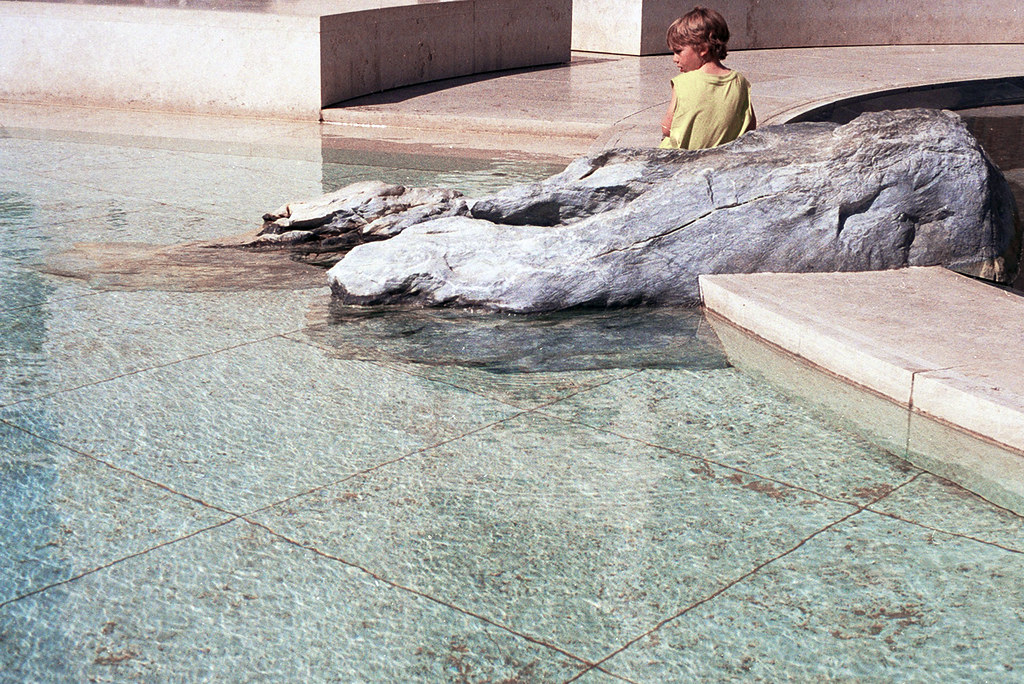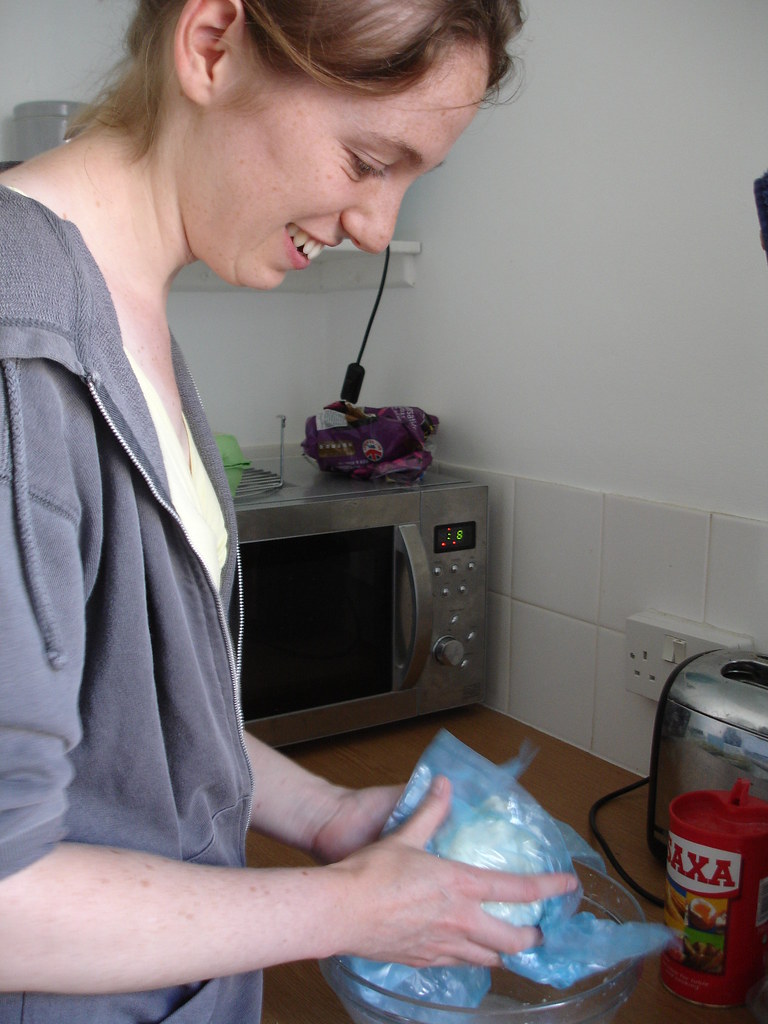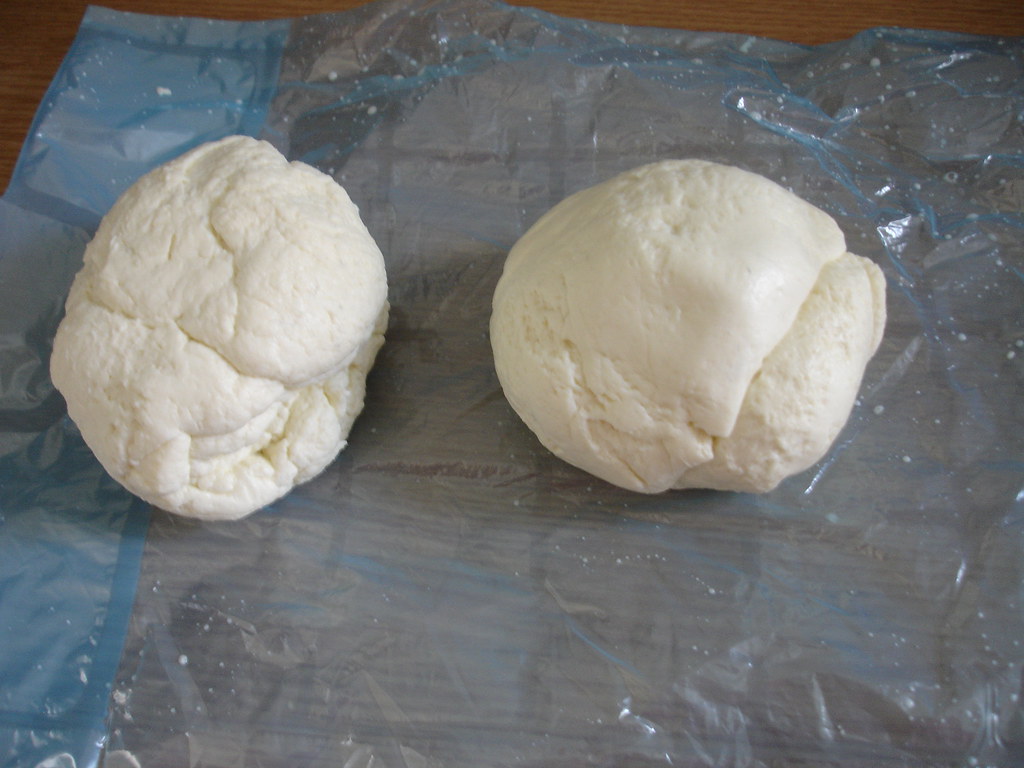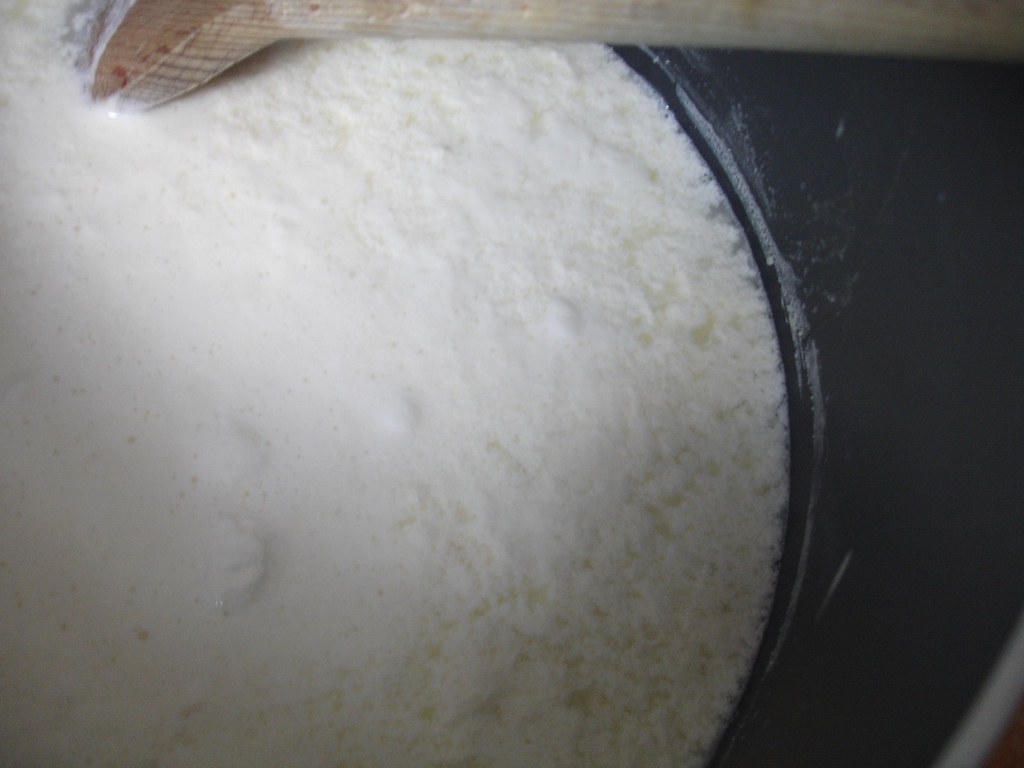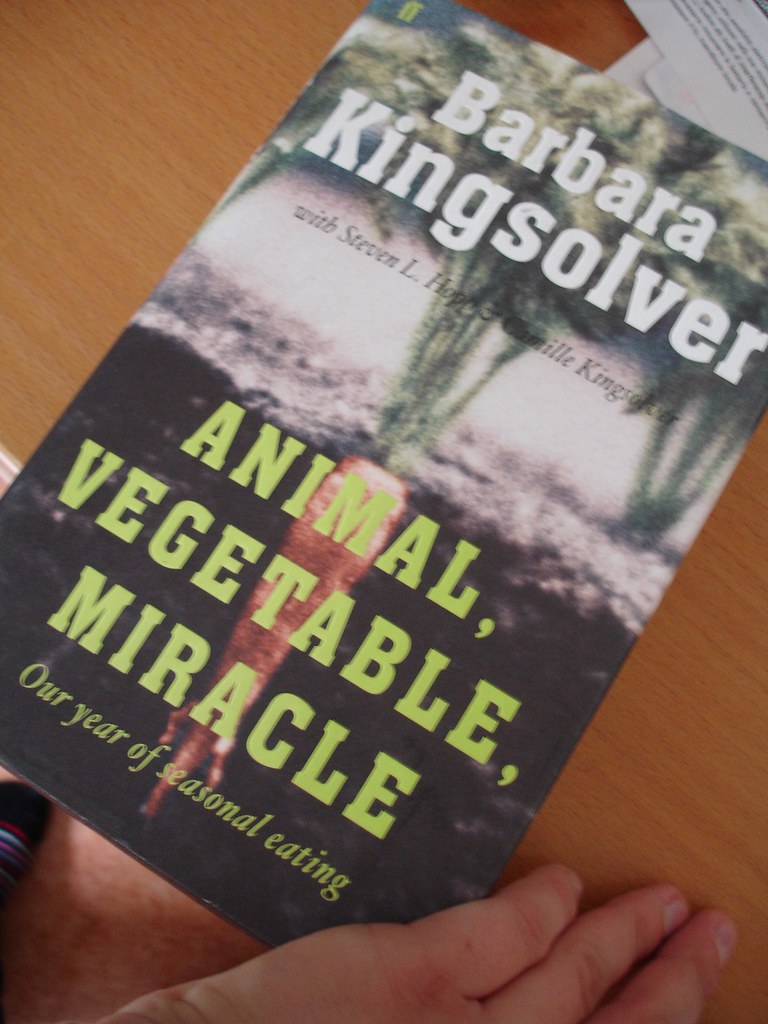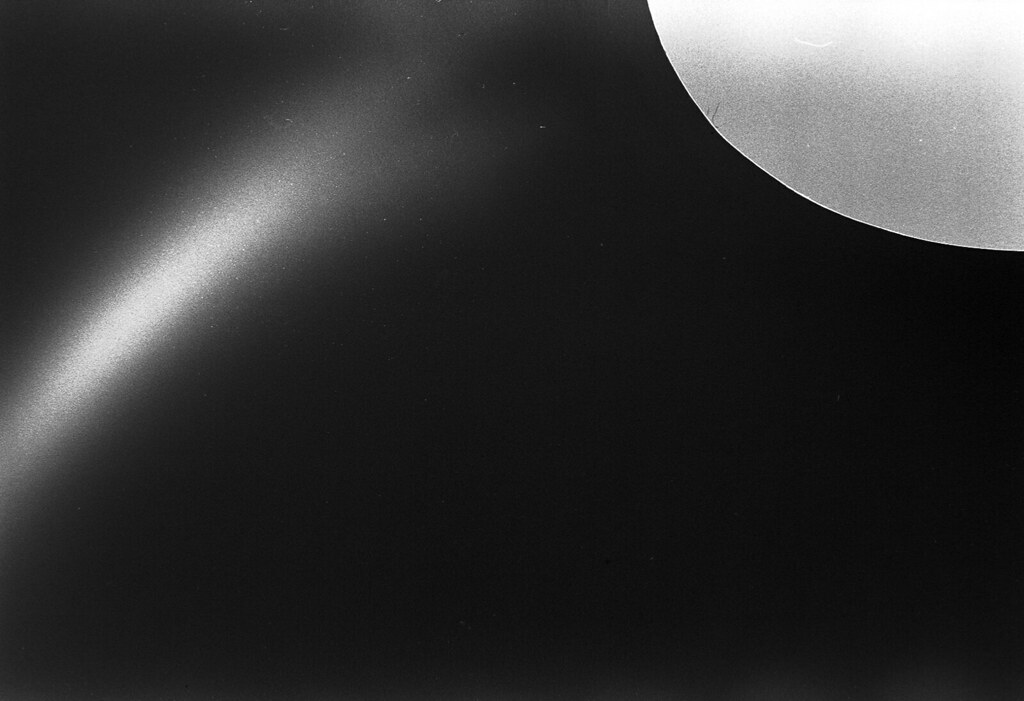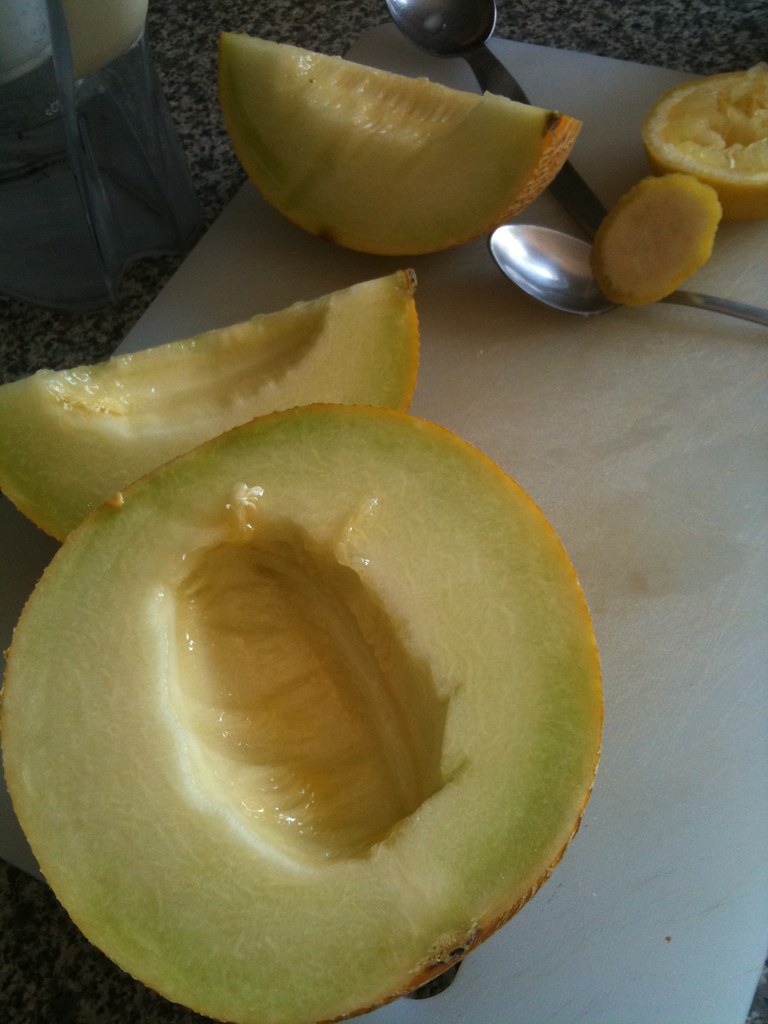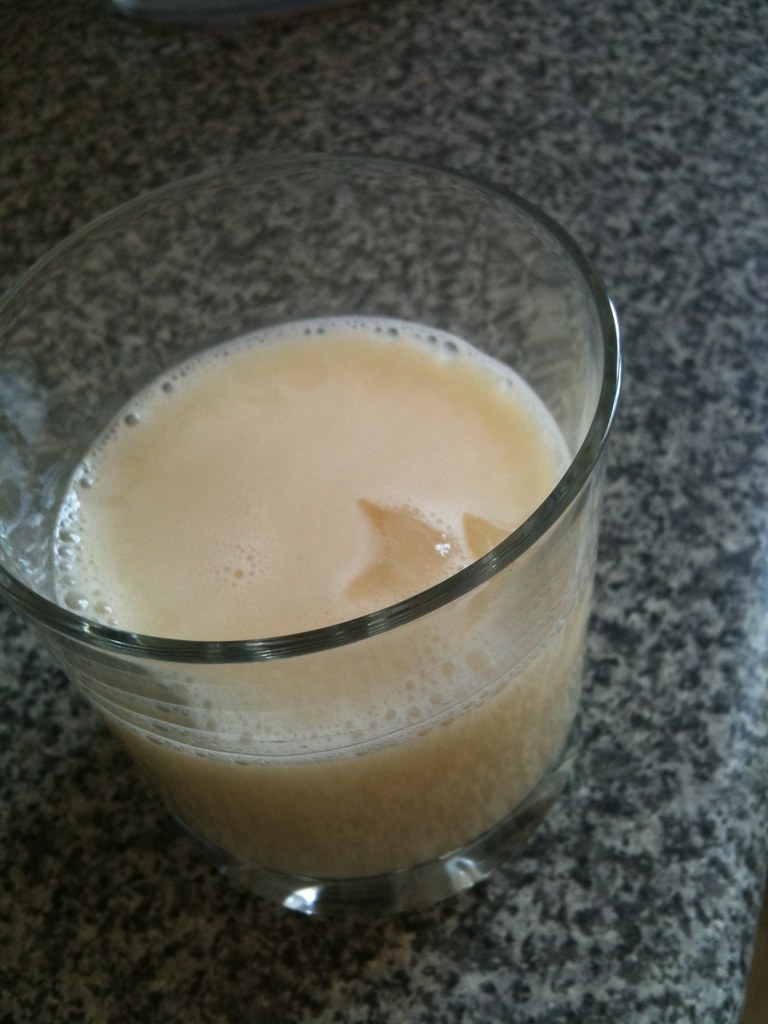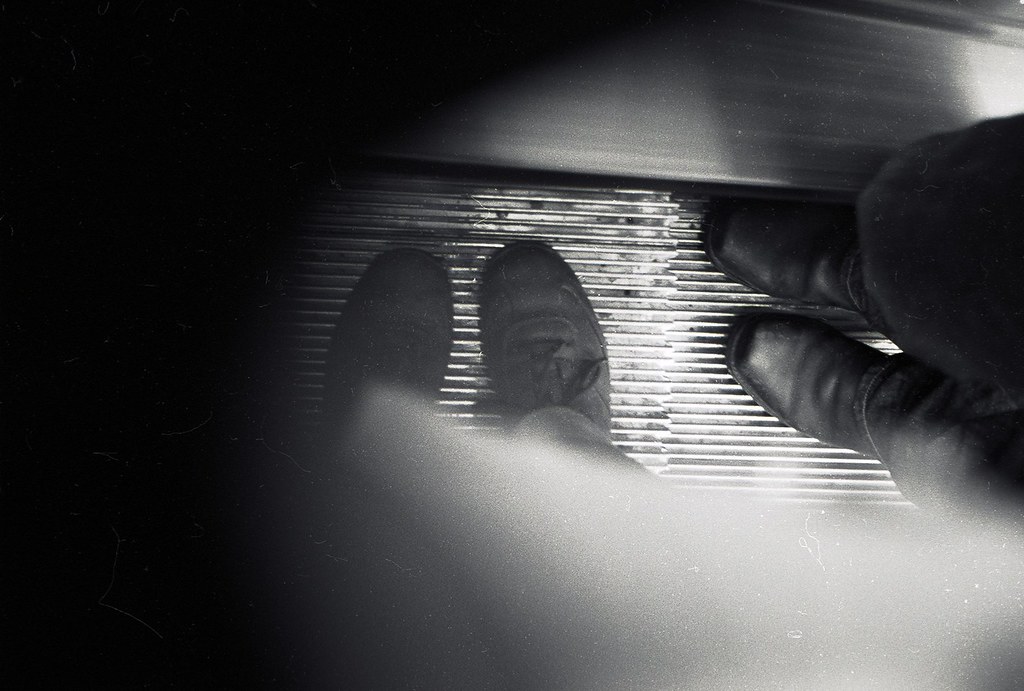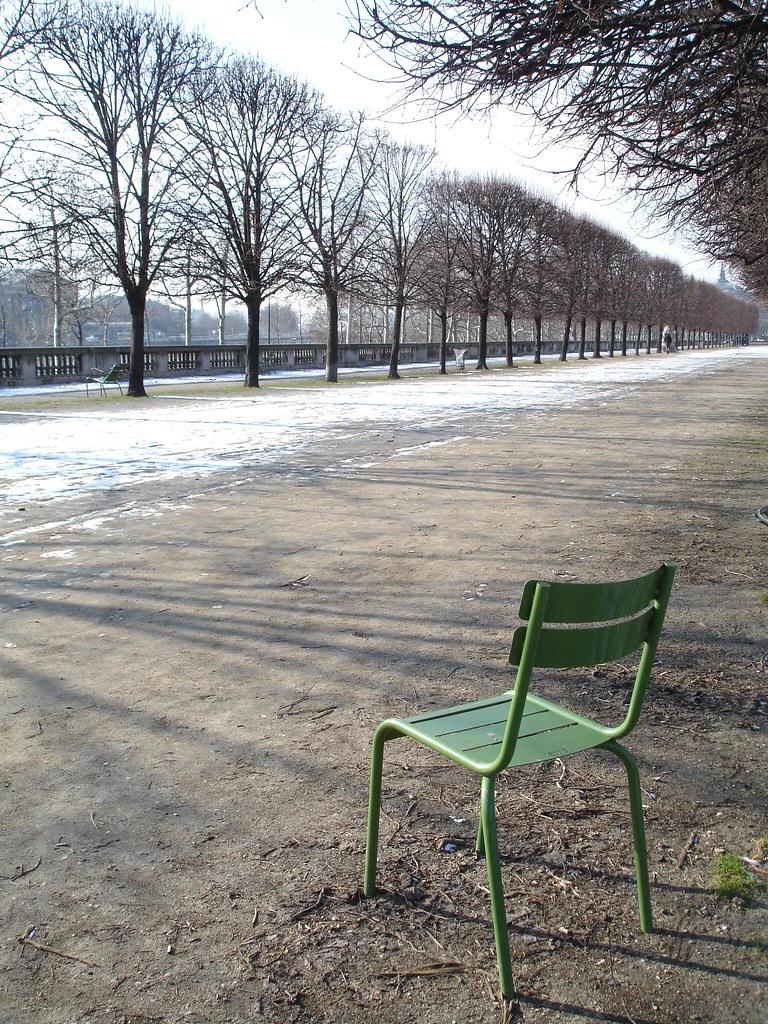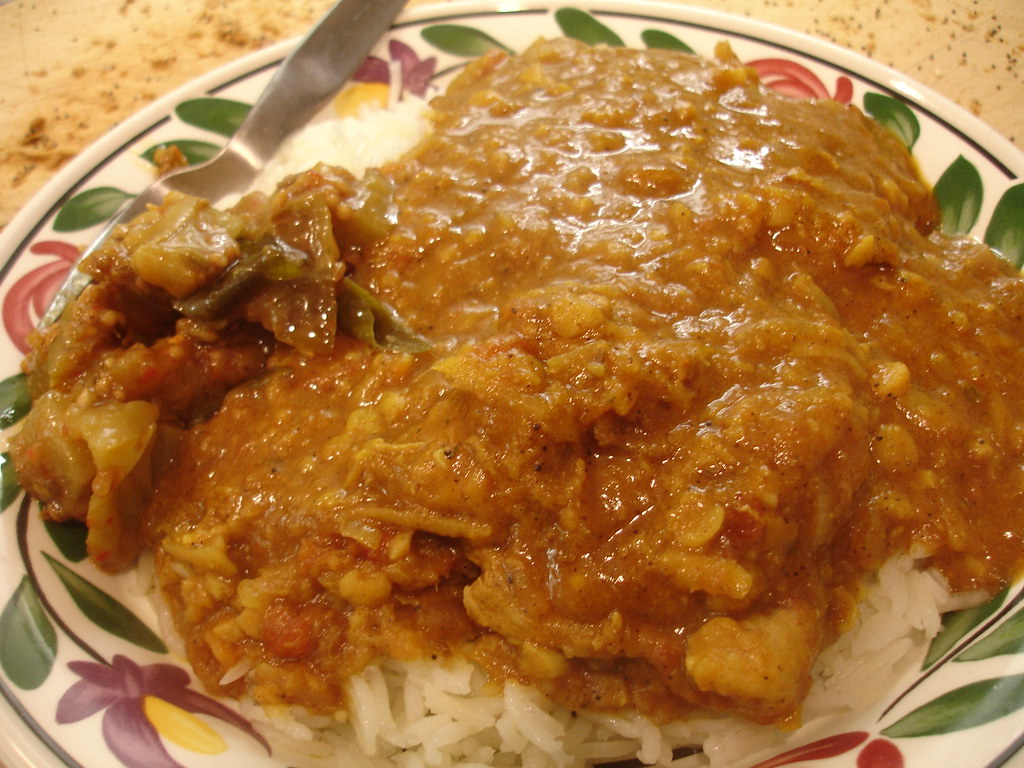(It's hard to photograph curry looking appetising.)
Ok. This time I have nobody to blame my recipe backlog on. It's just built up. I was sort of waiting for the bacon to be cured before writing about it, and then I made this the other day and only found time today... But! This is the best chicken curry I ever made, and I made it more or less by accident.
A few weeks ago, I wanted a stir fry. Just...did. I was also feeling extravagant, which meant that my stir fry needed meat in. Chicken breasts are depressingly easy to cook into dry blandness, and frankly are expensive. I buy chicken thighs, or thighs and drumsticks, which seem to be given away for pennies even if they're organic. They won't be dry when you cook them, and you have bones for making stock and thereby making the money go further. I buy them bone in. It's a faff to de-bone them, especially the drumsticks. But it's so worth it. You need 20 minutes to do a pack of 4 thighs and 4 legs, and a sharp small knife and something to listen to you while you do it. Also, not to care that much about what it's going to look like. Learning the anatomy of a chicken leg will take one attempt. Mind out for the sharp pin bone that's sometimes in the drumstick, it's easy to break it and leave it in the meat.

(Today is *caption* day. See that little dried chilli in there? I grew it. From a seed. And then I dried it myself. It makes me very proud.)
But...what you get is bones. I'm actually more interested in the bones than the meat. Stock freak. It takes an evening to make stock. About 5 minutes prep if you have the bones ready, then 4 hours of simmering while you do something else. For an ordinary western-type stock, you'd need to have bones, celery, onion, carrot, peppercorns (no salt) and bay in there. This stock, when I made it, was going to be a noodle soup, so the ingredients you see above are an onion stuck with 4 cloves, a star anise, a dried lime (optional, but I like them - don't use a fresh lime the pith makes it too bitter), a two cubic inch piece of root ginger peeled and coarsely sliced, and a couple of dried chillies. I covered it with water and simmered as slow as possible. The house smelled wonderful. Then, I drained it and reduced it (boiled until smaller) so that it would fit in a container in the freezer.
(stock)
Now, the intention was going to be to make that stock into noodle soup - a mixture of stir fried mushrooms, pak choi and spring onion combined with noodles cooked in the stock, all seasoned with soy sauce, lime juice, sesame oil and sweet chilli sauce. Clean easy dinner. BUT. I was going through the freezer the other day and found a tub of cooked off chana dal (yellow split peas), the remaining boned out chicken pieces and the stock. In my head, it all became curry.
The chana dal is easy, by the way. Buy a packet (world food aisle, or wherever the pulses are. World food aisle will be cheaper...), follow instructions (soak overnight, boil). I could have boiled some red lentils instead while I was cooking the other bits - they don't need soaking and cook in half an hour or so. They would have been nearly as good, but the stew would have been less thick. I just happened to have some on hand.
Ok. So. This recipe is long and complicated. Except it wasn't. I had the components for it on hand from other cooking I'd done in the past. Which is the reason that I always cook off the entire packet of anything that needs soaking when I have the time, or boil up my chicken bones for stock on an evening I'm in, and freeze them in batches. It's not putting extra time into a specific recipe, it's just making use of the time I have, I guess. But. I will try and repeat this dish in the future and I won't have those things in my freezer. Then, I'll use an (organic) chicken stock cube and boil up my red lentils as and when I need to cook. I'm sure it'll still be fine. If I can remember what I did this time around, anyway. In reading the
H-FW book, I discovered a recipe for a tikka marinade, which is the point of that stage. Pieces of chicken coated in salt, pepper and garam masala and then fried would also be fine, I'm sure, to cut another step out.
Chicken Tikka Dansak, sort of
Ingredients
For the chicken tikka marinade, with a nod to H F-W:
½ a teaspoon salt
1 tbsp yoghurt
½ tbsp lemon/lime juice
1 tbsp garam masala
1 tsp ground coriander
1 tsp mixed spice
1 tsp ground fenugreek
A golf ball sized piece of root ginger, coarsely grated (I also keep ginger ready grated in ice cube trays in the freezer...anal? Moi?)
2 large garlic cloves, crushed/chopped
1 hot green chilli, finely sliced (also in the freezer - who the h*ll can use all of one of those bags of hot little chillies they sell in the supermarkets before they go off?!)
1 tbsp flavourless oil
For the curry:
The meat from 3 large free range chicken thighs, skin on - around 300g, cut into large pieces (about 4 per thigh)
2 large onions, sliced into thin half moons
4 large cloves of garlic, crushed/chopped
2 cubic inches or thereabouts of fresh ginger, peeled
and coarsely grated
1 tsp cumin seeds
1 tsp ground fenugreek
1 tsp turmeric
½ tsp ground star anise, or half a one
6 green cardamon pods, crushed enough to break them open
1 tbsp garam masala
2 small hot green chillies, stalks removed and cut into three or so large pieces each
1 tin chopped tomatoes
250g (dry weight) chana dal or yellow split peas, cooked to the consistency of mashed potato (see the back of the packet), or the same weight of red lentils cooked in unsalted water until completely soft and as thick as possible without burning them (don't add too much water to start with and keep topping up until they're done)
1 litre good quality organic or home-made chicken stock, ideally with the Eastern spices as described above
Salt, freshly ground black pepper
Around a teaspoonful of sugar
Juice of 2 limes
3 tbsp flavourless oil
Combine the marinade ingredients and rub well into the chicken pieces. Marinade pieces overnight or not less than 5 hours. Makes the fridge smell good. When you start the sauce, preheat the oven to 230℃.
Make the sauce. Heat the oil in a very large pan and add the cumin seeds. Fry for a few seconds and then add the onion and a pinch of salt and stir well. When the onions are translucent, add the ginger (reserving one teaspoonful), garlic and chillies. Fry again for a minute and stir in the dry spices and whole ones, and a grind of black pepper. Stir to combine. It shouldn't look dry at this point, if it does add some more oil or it will burn. Stir in the chopped tomatoes and bring to the boil. Simmer for around 15 minutes, tasting after 10. Add half the sugar to bring out the flavour of the tomatoes, and taste to see if the flavour is strong enough - it might want more garam masala. This sauce is going to thin down considerably with other ingredients, so it needs to be strong at this point. Set aside.
Spread the chicken pieces onto a baking sheet and roast in the preheated oven for 5 minutes at 230℃ and then 15 minutes at 200℃.
While the chicken is in the oven, bring the tomato sauce back to the boil and stir in the cooked pulses. Add any left over marinade from the chicken. When it is simmering, add in the stock until a sauce consistency is reached - you might not need it all. If you add too much, boil until it reduces and thickens, stirring to stop it burning. Taste - the pulses will mean it wants more salt, sugar and most of the lime juice (reserve half a lime for the end). If it's not spicy enough, add some cayenne pepper. Simmer for 5 more minutes, and then add in the cooked chicken tikka and any scrapings from the tray. Simmer for 5 more minutes and then stir in the reserved lime juice and ginger. If you discover it's too spicy, stir in some yoghurt or some cream and heat very gently (don't boil).
Serve with rice. I ate this with Carl last night, and I decided I was so pleased with it that it merited a trip to the curry house around the corner to buy it some nan and some onion bhajis, too...



